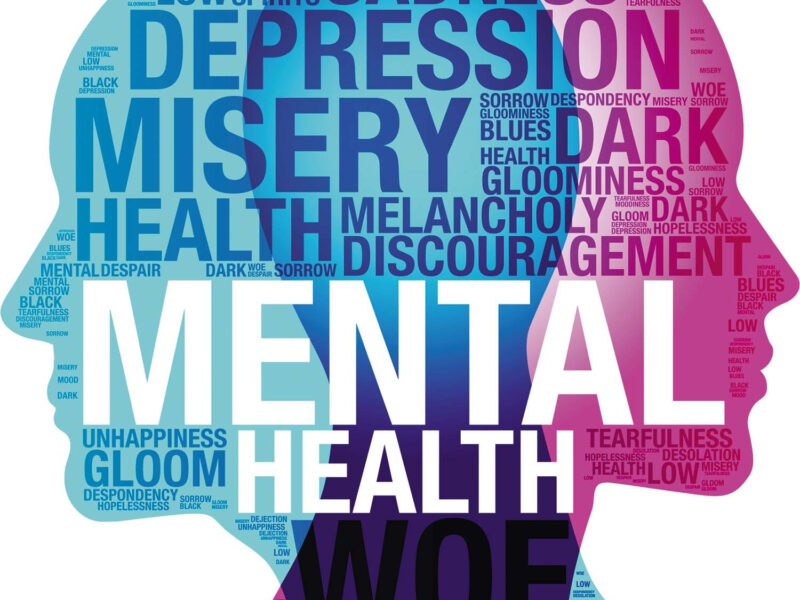Mental health, an integral component of overall well-being, remains shrouded in stigma and misconception despite significant strides in understanding and advocacy. The pervasive stigma surrounding mental illness perpetuates silence, shame, and discrimination, hindering individuals from seeking help and accessing vital support services.
However, through concerted efforts in education, advocacy, and compassion, it is possible to dismantle stigma, foster understanding, and promote inclusivity in mental health discourse. This essay delves into the importance of mental health awareness, explores the roots of stigma, and elucidates strategies for breaking down barriers to care and support.
Understanding Mental Health Stigma
The stigma surrounding mental health encompasses negative attitudes, stereotypes, and discriminatory behaviours directed towards individuals with mental illness. Rooted in fear, ignorance, and societal norms, stigma perpetuates harmful myths and misconceptions, portraying mental illness as a character flaw or moral failing rather than a legitimate health condition.
This pervasive stigma manifests in various forms, including social ostracism, employment discrimination, and barriers to accessing healthcare services. Moreover, internalized stigma, or self-stigmatization, can exacerbate feelings of shame, low self-esteem, and reluctance to seek help among those affected by mental health challenges.
The Impact of Stigma on Mental Health
The deleterious effects of stigma on mental health are profound and far-reaching, exacerbating distress, impeding recovery, and perpetuating cycles of isolation and suffering. Individuals facing mental health challenges often experience reluctance to disclose their struggles due to fear of judgment or rejection, leading to delayed intervention and exacerbation of symptoms.
Moreover, stigma can hinder access to quality healthcare services, impeding individuals’ ability to seek timely diagnosis, treatment, and support. This perpetuates disparities in mental health care, particularly among marginalized communities facing intersecting forms of discrimination.
Breaking the Silence: The Power of Awareness and Advocacy

Central to combating mental health stigma is raising awareness, fostering empathy, and challenging entrenched misconceptions surrounding mental illness. Education plays a pivotal role in dispelling myths, promoting accurate information, and fostering understanding of the biological, psychological, and social dimensions of mental health. By engaging in open and honest conversations about mental illness, individuals can create safe spaces for dialogue, destigmatize seeking help, and cultivate a culture of compassion and support.
Media literacy and responsible portrayal of mental health issues in the media are crucial for shaping public perceptions and reducing stigma. By depicting authentic narratives, diverse experiences, and recovery-oriented messages, media outlets can challenge stereotypes and promote empathy towards individuals with mental illness.
Moreover, advocacy efforts led by individuals with lived experience of mental health challenges are instrumental in amplifying marginalized voices, advocating for policy reforms, and demanding equitable access to mental health care.
Promoting Inclusivity and Supportive Communities
Creating inclusive and supportive communities is essential for fostering resilience, social connection, and collective well-being. Community-based initiatives, such as peer support groups, mental health awareness campaigns, and anti-stigma programs, play a vital role in reducing isolation, fostering solidarity, and empowering individuals to seek help without fear of judgment or discrimination.
Moreover, workplaces, schools, and healthcare settings can implement stigma-reduction interventions, provide mental health education, and promote supportive environments conducive to emotional well-being.
Addressing Structural Barriers to Mental Health Care
Addressing structural barriers to mental health care is imperative for ensuring equitable access to services and support for all individuals. This entails dismantling systemic inequities, addressing disparities in mental health service provision, and integrating mental health care into primary healthcare settings.
Moreover, destigmatizing mental illness within healthcare professions, enhancing cultural competency, and promoting trauma-informed care are essential steps towards creating a more inclusive and responsive mental health system.
Cultivating Compassion and Empathy
At the heart of stigma reduction lies compassion, empathy, and human connection. By fostering empathy towards individuals facing mental health challenges, we can create a more compassionate and supportive society that values the inherent dignity and worth of every individual.
This involves listening without judgment, offering support without stigma, and validating the experiences of those affected by mental illness. Through acts of kindness, understanding, and solidarity, we can collectively challenge stigma, promote mental health awareness, and create a more inclusive and compassionate world for all.
Conclusion
In conclusion, mental health awareness is paramount for challenging stigma, fostering understanding, and promoting inclusivity in mental health discourse.
By raising awareness, promoting empathy, and advocating for systemic change, we can break down barriers to care and support, empower individuals to seek help without fear or shame and cultivate a society that values mental health as a fundamental aspect of overall well-being.
Together, let us shatter stigma, cultivate compassion, and create a more inclusive and supportive world where everyone can thrive, free from the shackles of stigma and discrimination.
Related Tags
Taiwo Olawuyi
Taiwo Olawuyi is a highly dedicated and passionate professional blogger, renowned for her ability to create captivating, informative, and engaging content in the realm of health and wellness. She holds a Bachelor's degree in Political Science from Olabisi Onabanjo University and a Master's degree in Adult Education from the prestigious University of Ibadan. Her profound passion for health and wellness, coupled with her unwavering dedication to her audience, serves as a constant source of inspiration and enlightenment for readers worldwide.










